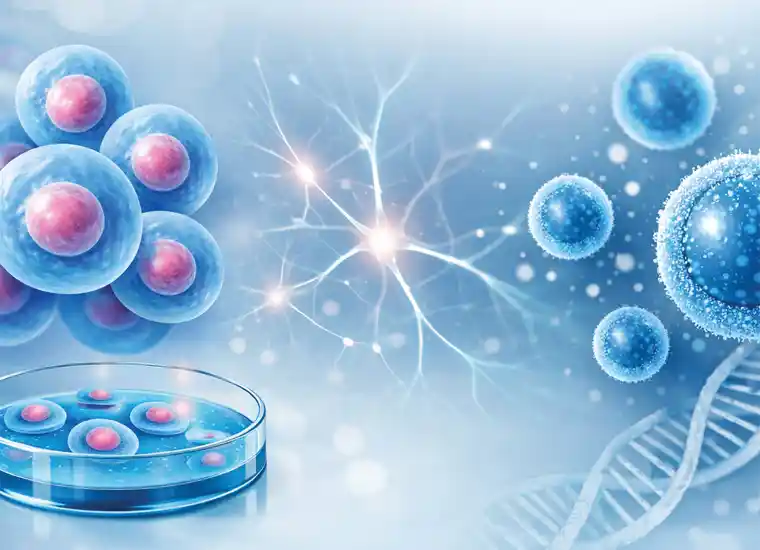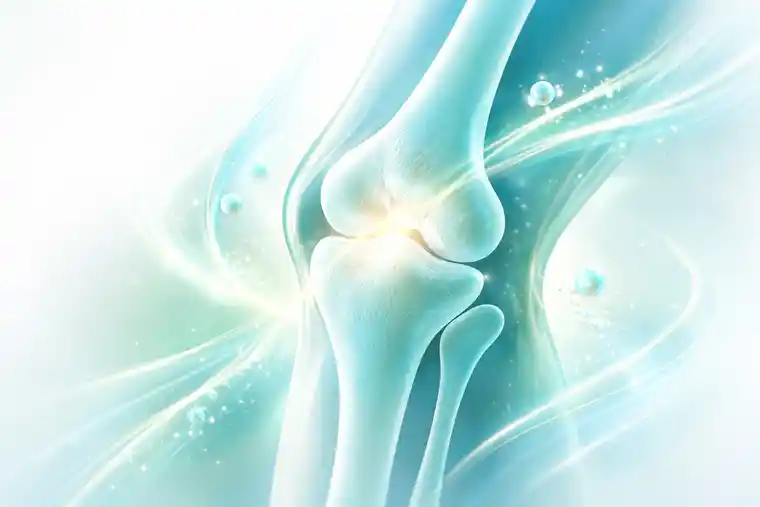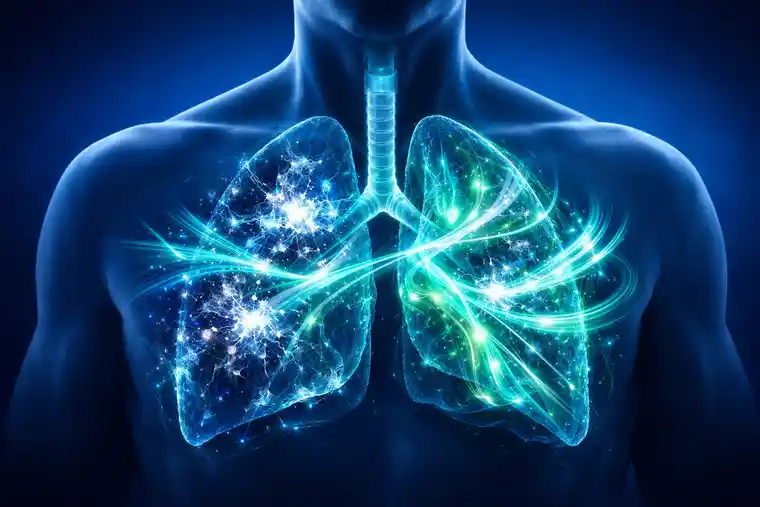How the Gut Affects the Mind: Gut-Brain Axis Therapy in Istanbul, Turkey – Insights by Prof. Dr. Erdinç Civelek, MD, PhD (C)
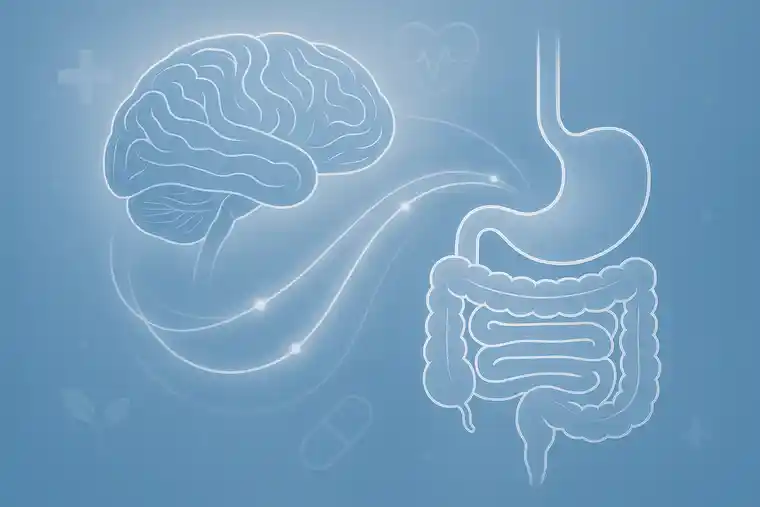
Written by Prof. Dr. Erdinç Civelek, MD, PhD (C)
Why the gut-brain axis deeply matter
I’m Prof. Dr. Erdinç Civelek, a physician and researcher with a clinical and scientific focus on chronic neuroinflammation, and regenerative therapies in central and peripheral nervous system diseseas. My scientific papers have been published in many high quality international medical journals, and in practice, I combine evidence-based medicine with a personalized, integrative approach to treating complex conditions.
So let’s dive in …
Our body is not just a sum of organs. It’s a highly intelligent system. And two of the most underestimated organs in this system – at least in terms of how deeply they interact – are the gut and the brain.
I still remember a patient who came to me with persistent digestive issues. But what struck me more than her symptoms was the way she described her life: “Doctor, I haven’t felt like myself in years. My thoughts are foggy. I feel anxious for no reason.” After a few months of restoring her gut health, she returned and said something I’ll never forget: “When my belly calmed down, my mind came back.”
That sentence stayed with me.
Today, I want to take you into the fascinating world of what medicine now calls the Gut-Brain Axis. This isn’t just another trendy term. It’s a scientific reality – and understanding it can be life-changing for patients who feel unseen, misdiagnosed, or misunderstood.
Table of Contents
What is the Gut-Brain Axis – and why is it so important?
The Gut-Brain Axis refers to the two-way communication system between your digestive tract and your brain. This isn’t just poetic imagery. It’s a literal, biological reality.
Let me explain it in simple terms: Your gut and brain are in constant conversation, therefore it is called the gut-brain axis. They communicate through:
- Nerve signals – especially via the vagus nerve
- Hormones and neurotransmitters – such as serotonin, dopamine, and GABA
- Immune molecules – like cytokines that travel in the bloodstream
- Gut microbiota – trillions of bacteria that produce mood-regulating chemicals
We often refer to the gut as the “second brain,” and that’s more than just a catchy phrase. It’s home to a vast network of neurons – more than some parts of the central nervous system – and it’s deeply involved in producing neurotransmitters like serotonin, making decisions about immune responses, and keeping inflammation in check.
So, when your gut is inflamed, imbalanced, or dysregulated—it’s not only your digestion that suffers. This inflammation negatively affects entire neuronal network of the nervous system., and of course your emotions, clarity and energy often suffer greatly as well.
When is Gut-Brain Axis treatment useful?
I often meet patients who arrive carrying a puzzle of symptoms that no one has managed to piece together. They’ll mention bloating, constant fatigue, a mind that feels foggy, nights spent tossing and turning, or a sense of anxiety that seems to come from nowhere. Some feel irritable for no reason. Most have already seen several doctors, gone through countless tests, and still walk away without real answers – only more confusion.
The common thread? A disruption in the Gut-Brain Axis.
Some are surprised to hear that what’s going on in their gut might be linked to what they feel in their mind. But the truth is, this axis governs a wide range of physical and emotional states – and sometimes, even developmental conditions.
I look at the Gut-Brain Axis when patients suffer from:
- Irritable Bowel Syndrome (IBS)
- Chronic fatigue or burnout
- Long COVID symptoms
- Persistent anxiety or mild depression
- Chronic inflammation or autoimmune tendencies
- Neurological early symptoms (like in Parkinson’s or MS)
- Sleep issues or restless nights without obvious causes
- Neurodevelopmental imbalances such as autism spectrum disorder (ASD)
I’ve seen it especially in children on the autism spectrum: the gut is often not just involved – it’s deeply entangled in the bigger picture. When the digestive and immune systems are constantly on edge, it doesn’t just affect the body; it can shape how the brain develops, reacts, and communicates. This is no longer theory. We now have growing evidence – and clinical experience – that addressing gut inflammation early on can make a real difference. In Turkey, it has become common medical practice to support children with autism using stem cell therapy and exosome-based treatments. These biological approaches are designed to help calm chronic inflammation, regulate the immune system, and create better conditions for emotional and sensory development.
Of course, not every person needs a full gut-brain intervention. But when someone shows signs that cut across systems – digestive distress, immune flare-ups, emotional dysregulation, sensory overwhelm – it’s worth asking: Could this all be connected? More often than not, the answer is yes. And recognizing that link can be the moment everything finally starts to make sense.
What most patients don’t know: Myths and misunderstandings
Many people walk into my office carrying more than just symptoms – they carry doubt. Doubt planted by years of being told, “It’s probably just in your head”, or, “You’re just stressed out.” Some have been dismissed with a casual, “Try changing your diet.” I want to say something clearly, as your physician: what you’re feeling is real. It’s not imagined. More often than not, what’s happening stems from a quiet, smoldering inflammation in the gut – the kind that builds slowly from daily stress, repeated antibiotics, processed foods, or imbalanced gut bacteria. And that inflammation doesn’t stay where it started. It travels. It whispers to your nervous system. It unsettles your mood, clouds your thoughts, and rewires how you experience life.
Common myths I like to clear up:
- “It’s all psychological.” Not at all. There are measurable changes in the gut that impact how your brain works.
- “Healthy food alone will fix it.” Nutrition is key—but microbiota modulation and inflammation control are also critical.
- “You just need to relax.” No one can relax when their gut is inflamed and their brain chemistry is off.
What we can achieve together:
- Decrease systemic inflammation
- Restore gut lining integrity
- Balance neurotransmitter production
- Improve resilience and clarity
No, it’s not magic. But it is medicine – personalized, respectful, and holistic. That’s how I practice.
How the treatment of the gut-brain axis works – from a physician’s perspective
When we treat the Gut-Brain Axis, we don’t just prescribe pills. We create a personalized roadmap. Here’s what the process looks like, in real life:
Step 1: Deep medical intake
We start by listening. I ask about symptoms, history, past medications, lifestyle, diet, stress levels, even birth history. The goal is to map out all influences—physical, emotional, microbial.
Step 2: Targeted testing (only when useful)
- Inflammatory markers
- Stool microbiota analysis
- Gut permeability indicators (zonulin, calprotectin)
- Hormone and neurotransmitter panels (if needed)
Step 3: Tailored interventions
- Anti-inflammatory nutritional therapy
- Microbiome support (probiotics, prebiotics, postbiotics)
- Stress-axis regulation (adaptogens, lifestyle tools, breathwork)
- Gut lining repair (e.g. glutamine, zinc carnosine, polyphenols)
- Neuroinflammatory support (omega-3s, curcumin, butyrate)
- Neuroregeneration (stem cells and exosomes)
Step 4: Monitoring and adaptation
Healing the gut-brain axis isn’t linear. It’s a dynamic process. We stay in touch, adjust as needed, and focus not just on lab numbers, but how the patient feels – emotionally, mentally, physically.
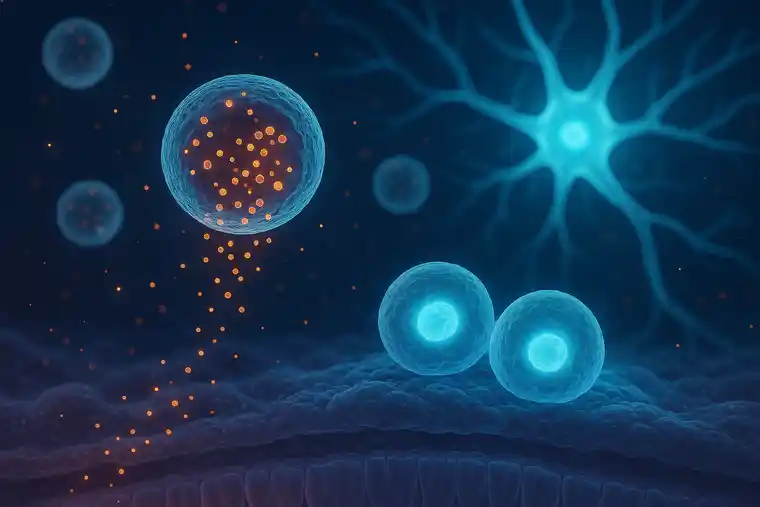
What results are possible – and when they appear
One of the most common questions I hear from patients is:
“How long will it take until I feel better?”
There’s no universal answer. The Gut-Brain Axis is not a light switch – it’s a system of balance. But in my clinical experience, here’s what a typical trajectory can look like:
⏱ First 2–4 weeks:
- Reduction in bloating and digestive pain
- Slight improvements in mood and energy
- More stable sleep patterns
- Less brain fog in the mornings
🕰 4–8 weeks:
- Noticeable shifts in stress resilience
- Emotional reactivity often decreases
- Patients report feeling “more like themselves”
- Stool quality stabilizes
⌛ 3–6 months:
- Systemic inflammation markers drop
- Weight normalizes (if inflammation-related)
- Anxiety levels may improve without needing psychiatric meds
- Cognitive clarity and focus return
But again: progress is not always linear. Some patients feel worse before they feel better—this is not a setback, but part of the immune recalibration. What matters is consistent guidance, follow-up, and trust in the process.
What the science says
Although we’re just beginning to understand the full power of the gut-brain axis, scientific research has already confirmed much of what we observe clinically. Let me mention two relevant examples:
🧪 1. Cryan et al. (Nature Reviews Neuroscience, 2019)
This landmark study demonstrated that gut bacteria influence brain function by modulating the production of neurotransmitters, stress hormones, and inflammatory markers. The authors emphasized the potential of microbiome-based therapies in treating depression, anxiety, and even cognitive disorders.
👉 PubMed Link
🧪 2. Mayer et al. (Gastroenterology, 2020)
This review highlighted how visceral hypersensitivity and low-grade gut inflammation are linked to anxiety and altered brain connectivity—especially in IBS patients.
👉 PubMed Link
These findings reinforce what we see in real life:
Treat the gut wisely, and the brain often follows.
Who is this treatment for – and who is it not for?
✅ You’re a good candidate if:
- You’ve had chronic digestive and emotional symptoms that don’t respond to conventional treatment
- You want to explore functional medicine backed by science, not fads
- You’re ready to look at the body as a system—not isolated parts
- You feel “off” in a way that labs alone can’t explain
⚠️ It may not be right if:
- You expect overnight fixes or miracle pills
- You’re currently undergoing active chemotherapy or immune suppression (these need special consideration)
- You’re unwilling to change diet, lifestyle, or medication routines even temporarily
- You’re dealing with unmanaged severe psychiatric illness (though we can support you as part of a broader care team)
I always say: this is not about perfection – it’s about participation. Healing works best when the patient becomes a partner in the process.
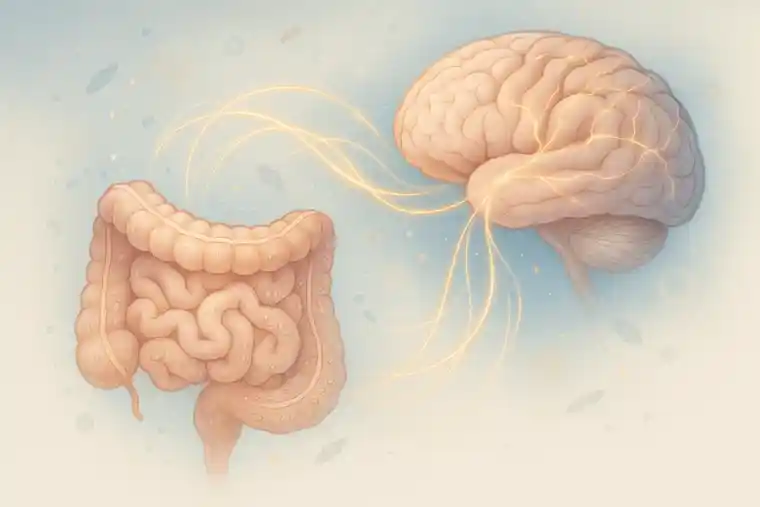
What the process looks like – step by step
Let me walk you through what it’s like to start this journey in our care. We’ve designed it to feel safe, clear, and empowering.
🩺 Step 1: Initial consultation
We sit down—patient to doctor. I listen to your full story, not just symptoms. Together, we decide if the Gut-Brain approach makes sense for your case.
🧪 Step 2: Functional testing (if applicable)
Not every case needs tests. But when we do use them, they’re targeted and meaningful. You’ll understand why each one is being ordered.
📋 Step 3: Plan design
Based on your data, we create a personalized protocol:
– Gut lining support
– Inflammation control
– Nervous system regulation
– Emotional resilience tools
🧘 Step 4: Follow-up & adjustment
We check in. We adapt. This isn’t a one-time fix—it’s a dialogue between you and your body, with me guiding the process.
💬 Step 5: Ongoing care
We continue until you feel not just better, but stable. You don’t need to become dependent on supplements forever—my goal is to bring your system back into self-regulation.
What patients are saying
“I came to Dr. Civelek after two years of bouncing between doctors. I had anxiety, fatigue, and IBS – but no answers. Within three months, I was sleeping through the night and laughing again. It felt like someone finally connected the dots.”
– Aysun, 34
“I didn’t expect much, honestly. I just wanted my stomach pain to stop. But I got more: I got my clarity back. I can think again. I feel in control of my emotions. That was unexpected – and beautiful.”
– Faruk, 47
These are not miracles. They’re what happen when we treat the whole person—not just parts of a body.
Quality, safety & our ethical standards
- Treatments and assessments are conducted in a certified clinical environment
- We follow strict hygiene and diagnostic standards
- I have trained extensively in both conventional and functional medicine
- We never make overpromises or claim to “cure” conditions beyond what’s medically realistic
- We do not sell supplement packages or unnecessary lab panels
In short: We offer real care – not gimmicks.
Final thoughts – a personal word from your doctor
If you’ve read this far, perhaps something in you resonates. Maybe you’ve felt lost in the healthcare system. Maybe your labs are “normal” but your life isn’t. Maybe you’re exhausted by being told it’s just stress – or worse, that it’s all in your head.
Let me reassure you:
Your experience is real. Your symptoms are valid. And your story matters.
The Gut-Brain Axis may not be a magical fix. But in many cases, it opens a door—one that leads back to balance, clarity, and hope.
If you feel ready, I’m here to listen.
No pressure. No fast sales. Just honest medicine.
Warm regards,
Erdinc CIVELEK, MD, PhD (C)
Professor of Neurosurgery
PhD Candidate of Immunology and Stem cell
President of Society of Stem cell and Cellular Therapies
Get your free consultation
- Need guidance and reassurance?
- Talk to a real person from MedClinics!
- Let's find the perfect doctor together.
